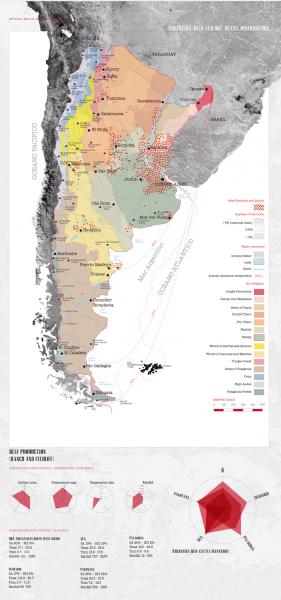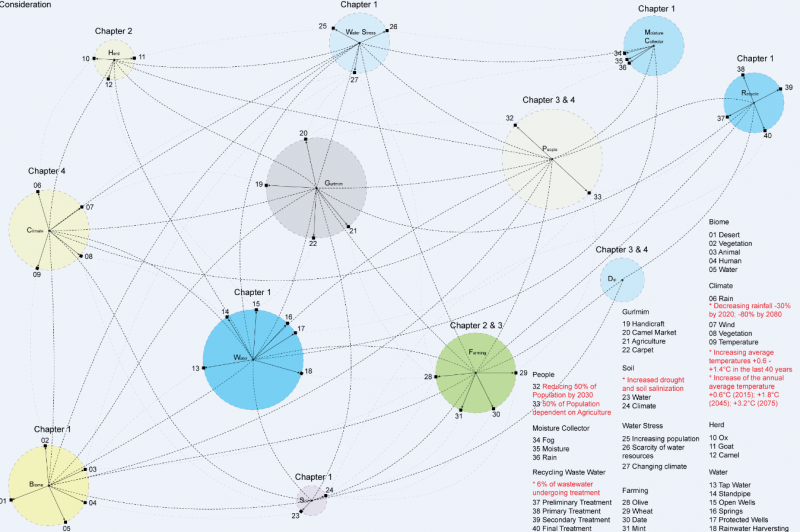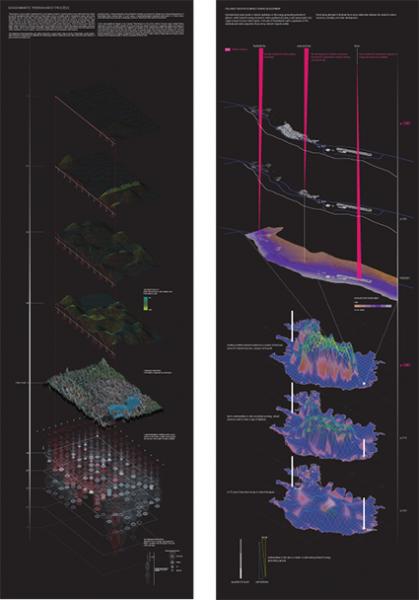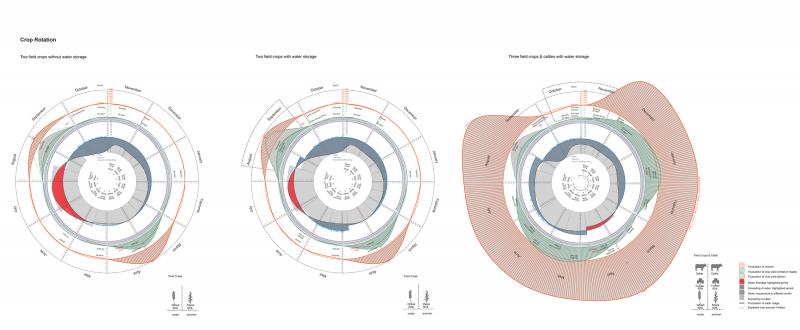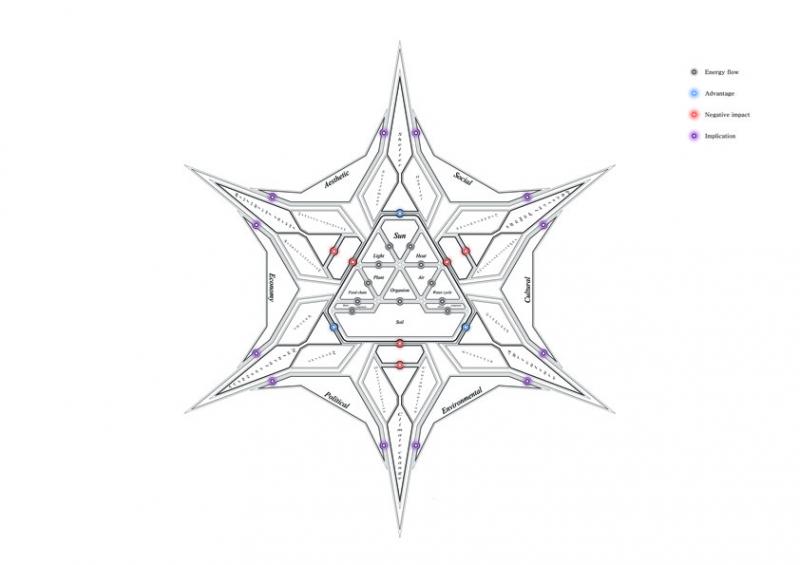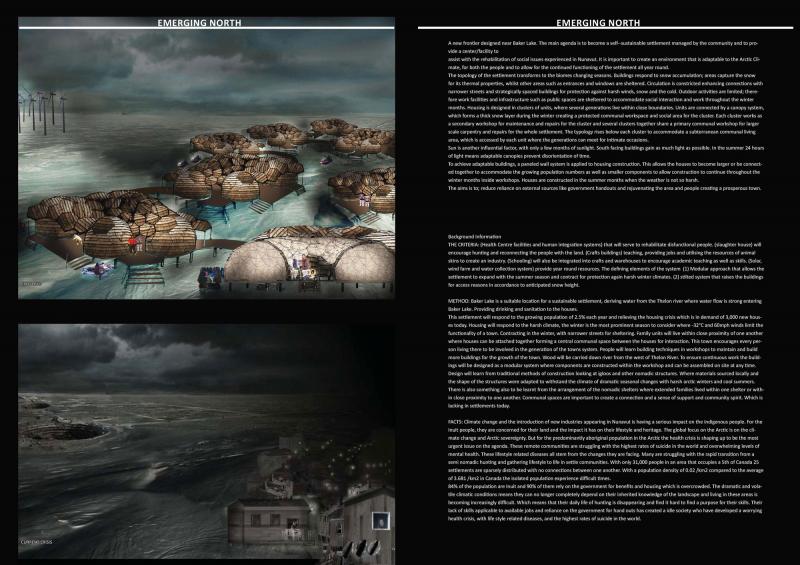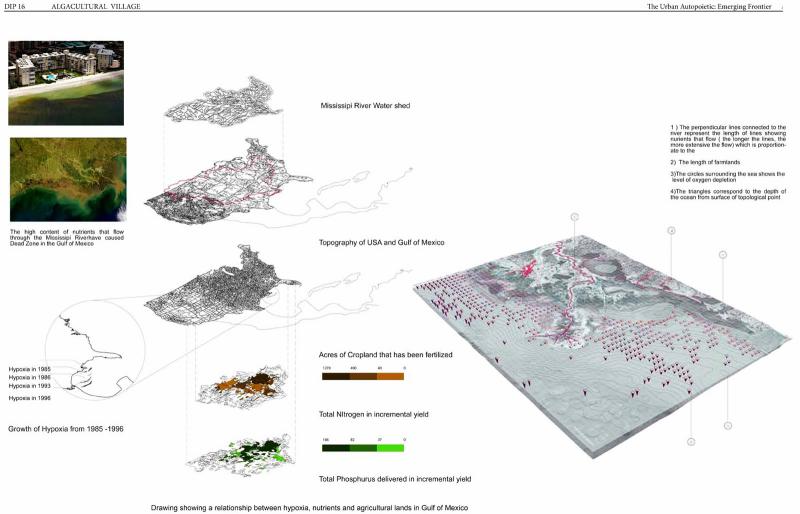Diploma 16 is continuing to develop alternative forms of architectural production methods and urban models based on cybernetics and adaptation occuring in our rapidly changing environment. This year, our research emanates from the production of new carbon-neutral cities and settlements striving for homeostasis between nature, technology and people. We are pursuing alternative forms of urbanism and settlement patterns on the emerging frontiers arising out of climate change and the human drive exploit untapped natural resources.
Diploma 16 is compositing vernacular types and construction methods with emerging urban/settlement types and fabrication methods in search for specificity of design. This exploration is carried out using generative and associative modelling techniques to produce an articulated and visionary framework for temporal self-generated urban growth. Associative modelling techniques are deployed to organise complex reciprocal relationships between multiple parameter sets and formative feedback loops.
Diploma 16 attempts to nurture environmentally conscious design talent, allowing each student to develop their own design technique and agenda – an intention at the core of the AA School – which ultimately results in a personal architectural thesis. This personal agenda evolves out of extensive research and begins to construct a brief that is developed by the student in response to the site they have selected. After an extensive field-study each student develops a BIOME-specific urban manifesto, a site-related research consultancy and an understanding of the local cultural context.
Building on from the experimental practice of self-governing design, Diploma 16 seeks to capitalise on the rapidly changing global environment, economy and cultural conditions and to utilise these as a springboard for imaginative collaborative production models. These models aim to produce innovative ecological urbanism, architectural design and visionary tectonics that can nurture design culture in cities and settlements emerging out of new forms of green economy.
Supported by
Andrea Marini
Kengo Skorick
Michael Kloihofer
Structural Consultancy
Reuben Brambleby (AKT & Imperial College)
Technical Studies Consultancy
Christina Doumpioti
Giles Bruce
Javier Castañón
John Noel
Kenneth Fraser
Martin Hagemann
Mehran Gharleghi
